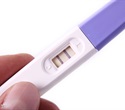Impact of Paternal Lifestyle on Sperm Epigenetics and Offspring Health
Recent research published in Clinical Epigenetics highlights how a father’s lifestyle choices and environmental factors-such as diet, obesity, smoking, exposure to endocrine-disrupting chemicals, and stress-can modify sperm epigenetic markers. These alterations can affect sperm quality, fertilization potential, early embryo development, outcomes of assisted reproduction, and long-term health risks for children.
Significant Insights
-
Epigenetic Imprints in Sperm: Paternal influences leave distinct epigenetic marks (DNA methylation, histone changes, small non-coding RNAs) that accompany the genome during fertilization.
-
Diet and Obesity: High-fat, high-sugar diets or folate deficiency are linked to changes in methylation and sncRNA profiles, affecting sperm quality and leading to metabolic issues in offspring.
-
Effects of Smoking: Smoking is associated with altered methylation in genes related to antioxidation, insulin signaling, and sperm formation, as well as reduced sperm motility and morphology.
-
Endocrine Disruptors: Chemicals like BPA and phthalates can cause transgenerational DNA methylation changes, impacting fertility and disease susceptibility.
-
Stress Impacts: Pre-conception stress in fathers is linked to changes in sperm miRNAs/piRNAs and methylation, with behavioral and metabolic effects observed across generations in animal studies.
-
Assisted Reproductive Technology (ART): Male BMI, diet, and alcohol consumption are correlated with embryo quality and ICSI outcomes. Epigenetic sperm profiles may serve as biomarkers to enhance ART success.
-
Clinical Recommendations: Preconception strategies such as weight management, quitting smoking, maintaining a balanced diet with sufficient folate, regular physical activity, and minimizing toxin exposure can potentially reverse negative sperm epigenetic changes.
Research Background
While maternal epigenetics has been extensively studied, this review underscores the growing evidence of paternal epigenetic effects. It highlights the need for longitudinal, controlled human studies using advanced methylation and RNA-sequencing technologies to account for confounding factors like genetic background and behavioral variations.
Importance of Findings
Improving male preconception health is a crucial factor in enhancing fertility, embryo viability, and the long-term health of children. Integrating epigenetic screening or lifestyle interventions into fertility care could improve ART outcomes and reduce the risk of intergenerational diseases.
Future Directions
-
Conduct large-scale, longitudinal studies to establish causality and dose-response relationships.
-
Implement standardized epigenome assays, such as MethylationEPIC and small-RNA profiling, in andrology and ART practices.
-
Test the effects of preconception lifestyle changes on sperm epigenetic markers and clinical outcomes.
Practical Advice
-
Maintain a healthy weight and consume a balanced diet rich in folate.
-
Avoid smoking, excessive alcohol, and diets high in fat and sugar.
-
Minimize exposure to endocrine-disrupting chemicals by reducing plastic use and assessing workplace risks.
-
Manage stress effectively, ensuring adequate sleep and regular physical activity.
-
Consult with fertility specialists about preconception health and consider participating in studies monitoring sperm epigenetic markers.
Source:
Journal reference:
Akhatova, A., et al. (2025). How do lifestyle and environmental factors influence the sperm epigenome? Effects on sperm fertilizing ability, embryo development, and offspring health. Clinical Epigenetics. doi.org/10.1186/s13148-025-01815-1








